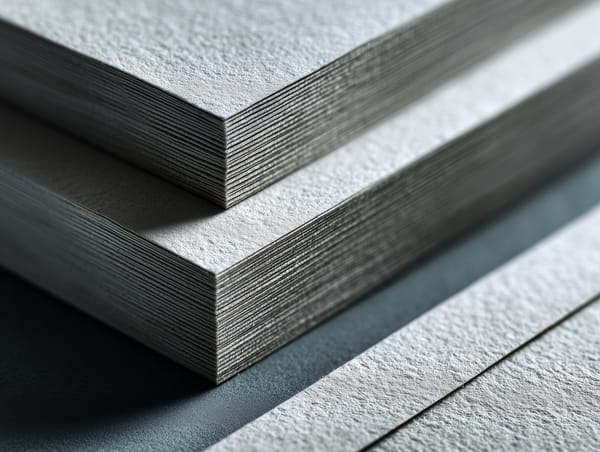Why you should never fall in love with your designs
Whether you’re a freelance graphic designer, an illustrator on the rise, or a student just breaking into the creative world, one of the most important lessons to learn is that it’s essential to detach yourself from your artwork and designs.

Whether you’re a freelance graphic designer, an illustrator on the rise, or a student just breaking into the creative world, one of the most important lessons to learn is that it’s essential to detach yourself from your artwork and designs.
This isn't as easy as it sounds—we often fall in love with our own work and can become attached to everything we create. However, learning how not to be swayed by those emotions will help enhance your style and make you more successful in the long run.
In this blog post, I'll share some tips for staying focused while improving your craft and why you should never fall in love with any design project.
You'll never be satisfied with your work if you're constantly in love with it
As freelance graphic designers, it’s easy to form an emotional attachment to our designs. We pour countless hours and energy into the creation of our projects, so it's only natural that we would become invested in the outcome.
Unfortunately, getting too attached can be a huge problem because it makes us less likely to make necessary changes.
When we fall in love with a design, we tend to think that any alteration would detract from its beauty or effectiveness.
We become emotionally attached, convinced that any critique or recommendation is an attack on our own creativity or skill level.
This makes us resistant and hinders our ability to see past our own biases and develop a more objective point of view.
The problem is compounded by the fact that even minor changes can be difficult for us to make objectively. We look at them as if they are erasing all of our hard work rather than improving upon the existing design.
However, those small adjustments can have a significant impact on the quality of the overall project—from fine-tuning details like font size and colour choice to making substantial alterations like reworking entire elements or adding new ones.
Finding a balance between being passionate about your work and being able to take constructive criticism is essential for freelance graphic designers and other creatives who want to produce their best work.
While it’s important to have faith in your ideas and designs, you should never allow yourself to become so attached that you are unable or unwilling to make improvements when needed.
Becoming more aware of your emotional attachment can help you stay open-minded when seeking feedback from others and making difficult decisions regarding changes within your projects.

Your designs will always evolve and change, so it's important to be able to adapt.
Believe it or not, adaptability is one of the key differentiators between someone who succeeds and someone who fails when it comes to designing. It's an industry that changes frequently and often favours those willing to take a risk.
As a designer, you have to be prepared to adjust your plans at the drop of a hat if need be.
You may have crafted what you think is the perfect design, only for something else to become the preferred choice. That means being able to just stay cool and revise your designs accordingly.
Don't expect everything you create to rock every single time—expecting that will lead to some heartache further down the line.
Over time, adaptability will become second nature; as long as you stay within budget and on schedule, there should never be any reason why your work isn't completed successfully!

If you're constantly falling in love with your designs, you'll never improve as a designer.
It's good to be pleased with yourself—who wouldn't want recognition for a job well done? But at the same time, if you're so in love with everything you create, it makes it hard to move forward and stay on track.
Falling in love with your work too often may leave you feeling unambitious and hesitant to try new things.
Make sure your passion doesn't compromise your progress and open up the door for growth—challenge yourself, take risks, and be honest about your shortcomings as a designer.
That way, you'll never lose sight of what success looks like!
It's also important to remember that there is no such thing as a perfect design. It's not just about the end result—it's about the journey it took to get there and how far you've come since then.
Don't let yourself become too attached, or else you'll miss out on learning valuable lessons along the way.

You'll never improve if you're not willing to accept criticism
If you want to get better at anything, the key is to be open to criticism.
That's tough for a lot of people; it feels scary and uncomfortable. But if you want success, you've got to accept that feedback—positive or negative—and use it to your advantage.
We can all find ways to develop from constructive criticism, so don't run from it—embrace it!
There will be times when someone's suggestion isn't exactly what we're looking for. But that doesn't mean it won't help in some way, shape, or form.
When somebody gives you their honest opinion on something, honour it—use it as an opportunity to grow and work towards your goals. After all, if you're not willing to accept criticism and learn from your experiences, then how can you expect yourself to improve?
It's okay to be proud of your work and show it off; just don't fall in love with the design. Instead, use the feedback to make it even better.
When you're passionate about something and have put in hours of hard work, it can be heartbreaking to hear someone suggest changes. But if your goal is to create the best design possible, then you should always be open to criticism and willing to learn from it.
So don't fall in love with your designs; take any constructive criticism as an opportunity for growth! By doing this, you'll be able to create amazing artwork that will stand out among the crowd.
You'll become too attached to your ideas and won't be able to let them go
It's easy to get attached to your ideas, especially if you pour a lot of time, energy, and emotion into them. It becomes difficult to let go once you become attached, even when those ideas aren't working anymore.
In the end, though, being able to detach yourself from your ideas is important if you want change, improvement, or progress.
If you're too emotionally invested in just one thing, then you'll miss out on other valuable opportunities that are passing by while you remain stuck in old patterns and beliefs.
You need to have an open mind so that you can find the best solutions—don't be afraid to revisit and adapt what seemed like good ideas before it's too late!

It's impossible to please everyone, so don't try to make your designs perfect for everyone
It's a never-ending game of cat and mouse if you try to please everyone with your designs.
You can drive yourself insane by continually tweaking your designs to make small adjustments that you think will make people happy. But at the end of the day, all you'll have is a design that no one is passionate about.
It's better to design something perfect for yourself and those who will really benefit from it; those are the people who really matter.
That way, instead of just looking alright on paper, it will have soul and real value that resonate with those who need it. That's the kind of design that will make people truly love your work.
So, don't fall in love with your designs—just make sure they're perfect for the people who need them most.
Falling out of love with your designs will help you see them more objectively
Falling out of love with your designs is an important part of the design process. It can assist you in taking a step back and viewing them objectively, without becoming emotionally invested in the outcome.
This makes it easier to identify flaws in your work, which can then be improved before it reaches the final stage.
When it comes to design work, objectivity is essential because it allows you to remove bias from the equation. If you fall too deeply in love with a design, it's easy to overlook any imperfections and thus fail to fix them before the launch.
Taking an objective stance also promotes better team collaboration because every member understands what needs to be done or pushed further in order to create the ideal design solution.
Furthermore, falling out of love with your designs will assist you in identifying aspects that could be improved.
Streamlining processes, simplifying layouts, and identifying areas where extra content should be included or removed entirely are all examples of this. All of these changes can take time, but they are all necessary if a good design is to produce an effective result.
Having an objective point of view will help ensure that all of the elements work well together to create something truly unique that resonates with your target audience.
Finally, falling out of love with your designs can lead to greater success, as even minor changes can have a significant impact on customer satisfaction and engagement levels.
Looking at your work through the eyes of someone else will provide you with valuable insights into how people perceive your message and will allow you to make minor changes for maximum effect.
The end result? a flawless design that quickly captures attention and produces excellent results for all parties involved!
So, if you want to create great designs that achieve your goals, remember to let go of your feelings for them and approach them objectively.
This will assist you in identifying any areas that require improvement while ensuring the highest quality design possible!
At the end of the day, it's just a design—don't let it take over your life!
Having a beautiful design to show off is something to be proud of, but it's important to remember that it is just a design and not something worth stressing out over.
It can be easy to get caught up in the details and the minor adjustments that need to be made, but if you're doing your best work, there's nothing more you can do after that.
Keeping yourself sane when dealing with designs can go a long way—taking breaks or asking for another opinion can help make sure your work still looks professional without wearing you down.
Don't let a design take over your life: no matter how good it looks, it's still just a design in the end!
We've all been there—we fall in love with our designs, thinking they're perfect just the way they are. But as designers, it's important to remember that our designs are meant to solve problems first and foremost.
If we get too emotionally attached to them, we'll blind ourselves from seeing their flaws and prevent ourselves from making them the best they can be.
So next time you find yourself falling in love with a design, take a step back and ask yourself if it's really solving the problem at hand. Only then will you be able to create truly great design work.
Have you ever fallen in love with a design only to have it fail? How did you handle it? Let us know in the comments below!



